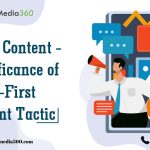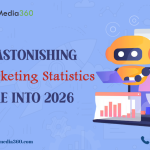SEO Content Strategy in 2023

As a digital marketer, you know that search engine optimization (SEO) is crucial for driving traffic to your website. But with the constant changes to Google’s algorithm, it can be tough to keep up with the latest SEO best practices.
In 2023, SEO is all about creating high-quality, relevant, and valuable content that helps your target audience find answers to their questions and solve their problems. Here are seven tips for developing an effective SEO content strategy in 2023:
1. Start with Keyword Research
Keyword research is the foundation of any SEO content strategy. By understanding what your target audience is searching for, you can create content that addresses their needs and questions.
To do keyword research, you’ll need a tool like Google’s Keyword Planner or Ahrefs. Simply enter a seed keyword related to your business, and these tools will provide you with a list of related keywords and their search volume.
Once you have a list of keywords, it’s important to prioritize them based on relevance, search volume, and difficulty. This will help you focus your efforts on the keywords that will have the biggest impact on your SEO.
2. Create a Content Calendar
Having a content calendar will help you stay organized and ensure that you’re regularly publishing new content. A content calendar should include a list of topics, the targeted keywords for each piece of content, and the publishing date.
To create a content calendar, start by making a list of topics that your target audience would be interested in. Then, do some keyword research to identify the main keywords that you want to target with each piece of content. Finally, decide on a publishing schedule that works for your business.
3. Write for Your Audience, Not for Search Engines
It’s important to remember that SEO is about helping your target audience find your website, not about tricking search engines. So, while it’s important to include your targeted keywords in your content, don’t stuff your content with keywords at the expense of readability.
Instead, focus on writing high-quality, valuable content that addresses the needs and questions of your target audience. This will not only help your SEO, but it will also increase the chances that your content will be shared on social media, which can drive even more traffic to your website.
4. Use Headings and Subheadings for Your Content Strategy
Headings and subheadings help to break up your content and make it easier for readers to scan and understand. They also provide an opportunity to include your targeted keywords and give search engines an idea of the content of your page.
When writing headings and subheadings, use the H1 tag for the main heading and the H2, H3, etc. tags for subheadings. This helps search engines understand the hierarchy of your content and can improve your SEO.
5. Optimize Your Images
Including images in your content can make it more visually appealing and help to break up long blocks of text. But it’s important to remember to optimize your images for SEO as well.
To optimize your images, make sure to use descriptive, keyword-rich file names and alt text. This will help search engines understand what the images are about and can improve the chances that they will be included in image search results.
6. Use Internal and External Links for Your Content Strategy
External linking refers to the practice of linking to other websites from your own. This can be a powerful way to improve your SEO, as it shows search engines that your website is a reliable source of information and that it is actively engaged in the online community.
When choosing which websites to link to, it’s important to focus on high-quality, authoritative websites in your industry. This will not only help your SEO, but it will also provide value to your readers by giving them access to additional resources.
Just be sure to use external linking sparingly and only when it makes sense within the context of your content. Overuse of external linking can come across as spammy and can harm your SEO.
7. Monitor and Adjust Your Content Strategy
SEO is not a one-time effort, but rather a continuous process of monitoring, adjusting, and improving your strategy. This means keeping an eye on your website’s traffic, search rankings, and conversion rates, and making changes as needed.
Tools like Google Analytics and Ahrefs can help you track your website’s performance and identify areas for improvement. By regularly reviewing your data and making adjustments to your strategy, you can ensure that your SEO efforts are paying off.
By following these seven tips, you can create an effective SEO content strategy that will help drive traffic to your website in 2023 and beyond. Remember to focus on creating high-quality, valuable content, optimize your pages for both users and search engines, and continuously monitor and adjust your strategy. With the right approach, you can effectively use SEO to reach your target audience and achieve your business goals.






